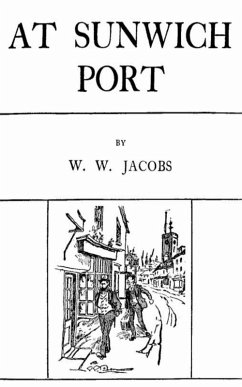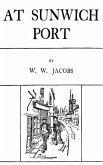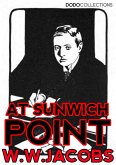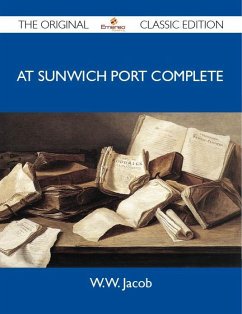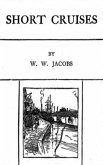The ancient port of Sunwich was basking in the sunshine of a July afternoon. A rattle of cranes and winches sounded from the shipping in the harbour, but the town itself was half asleep. Somnolent shopkeepers in dim back parlours coyly veiled their faces in red handkerchiefs from the too ardent flies, while small boys left in charge noticed listlessly the slow passing of time as recorded by the church clock. It is a fine church, and Sunwich is proud of it. The tall grey tower is a landmark at sea, but from the narrow streets of the little town itself it has a disquieting appearance of rising suddenly above the roofs huddled beneath it for the purpose of displaying a black-faced clock with gilt numerals whose mellow chimes have recorded the passing hours for many generations of Sunwich men. Regardless of the heat, which indeed was mild compared with that which raged in his own bosom, Captain Nugent, fresh from the inquiry of the collision of his ship Conqueror with the German barque Hans Muller, strode rapidly up the High Street in the direction of home. An honest seafaring smell, compounded of tar, rope, and fish, known to the educated of Sunwich as ozone, set his thoughts upon the sea. He longed to be aboard ship again, with the Court of Inquiry to form part of his crew. In all his fifty years of life he had never met such a collection of fools. His hard blue eyes blazed as he thought of them, and the mouth hidden by his well-kept beard was set with anger.
Dieser Download kann aus rechtlichen Gründen nur mit Rechnungsadresse in A, B, BG, CY, D, DK, EW, E, FIN, F, GR, H, IRL, I, LT, L, LR, M, NL, PL, P, R, S, SLO, SK ausgeliefert werden.

